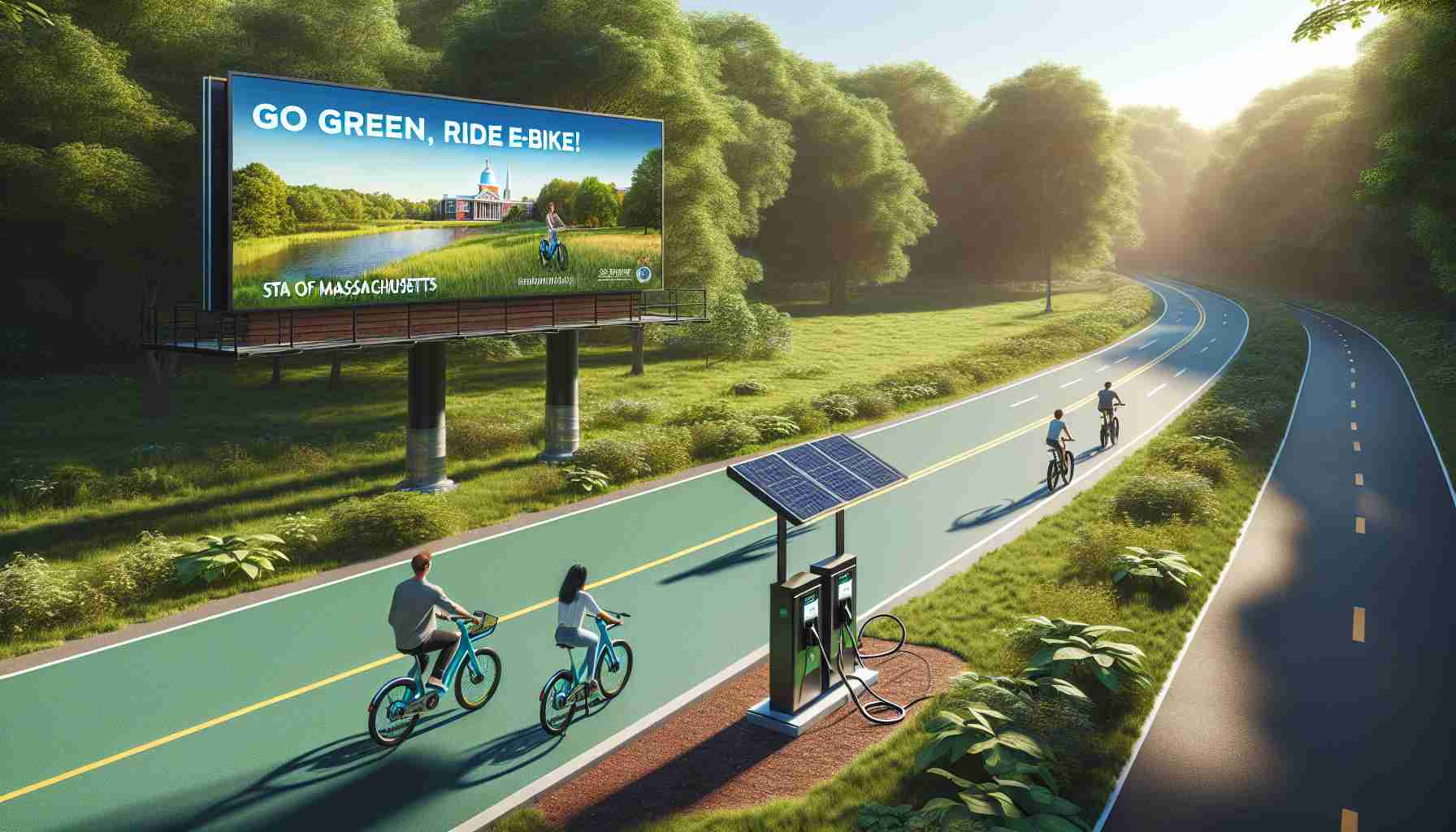Massachusetts is taking a bold step towards encouraging sustainable transportation by allocating $4.5 million to help low- and moderate-income households purchase pedal-assist electric bikes. The initiative, announced by the Massachusetts Clean Energy Center, aims to promote e-bike adoption while supporting the state’s environmental goals.
Under the proposed program, eligible residents with lower incomes, earning less than 2.25 times the federal poverty level, could receive a rebate of up to $1,200 or 90 percent of the total cost of a new e-bike. Moderate-income households, earning less than 4 times the federal poverty level, could apply for rebates worth $800 or up to 75 percent of their bike’s cost. Participants will also have the opportunity to receive an additional $150 for accessories such as lights, helmets, and locks.
The initiative is expected to subsidize several thousand new e-bike purchases, with incentives provided at the register in participating bike shops. However, the Massachusetts Clean Energy Center acknowledges the possibility of high demand surpassing the available number of incentives. To address this, the program might ration rebates on a monthly basis, ensuring the funding lasts longer.
E-bike rebate programs have proven to be both popular and cost-effective in other cities and states, serving as a means to reduce traffic congestion and air pollution. Denver’s e-bike rebate program, for example, revealed that participants replaced an average of 3.4 gas-powered vehicle trips per week with e-bike trips.
The Massachusetts Clean Energy Center has already funded smaller pilot programs that provided e-bikes and rebates to targeted populations. One successful example is the program in Worcester, where participants logged over 8,000 trips covering a total distance of 32,000 miles between August 2022 and May 2023. These trips were primarily for commuting and running errands, showcasing the transformative potential of e-bikes.
Galen Mook, the executive director of MassBike, expressed gratitude for the state’s commitment to expanding these successful programs statewide. The initiative not only promotes sustainable transportation but also helps to improve accessibility and reduce the environmental impact of car commuting. Massachusetts is paving the way for other states to follow in its footsteps towards a greener future.
The initiative announced by the Massachusetts Clean Energy Center is part of a broader effort to promote sustainable transportation and achieve the state’s environmental goals. By allocating $4.5 million towards helping low- and moderate-income households purchase pedal-assist electric bikes, Massachusetts aims to encourage e-bike adoption and reduce reliance on gas-powered vehicles.
This move towards sustainable transportation aligns with the global trend towards greener modes of travel. The electric bike industry has experienced significant growth in recent years and is projected to continue expanding. According to a report by Market Research Future, the global electric bike market is expected to grow at a CAGR of 7.2% from 2020 to 2027. This growth is driven by factors such as increasing consumer awareness about the environmental benefits of e-bikes, improvements in battery technology, and government initiatives to promote electric mobility.
E-bike rebate programs have proven to be popular and effective in other cities and states. Denver’s e-bike rebate program, for instance, demonstrated that participants replaced an average of 3.4 gas-powered vehicle trips per week with e-bike trips. This not only reduces traffic congestion but also contributes to improving air quality and reducing carbon emissions.
With the subsidy provided through this new initiative, Massachusetts aims to subsidize several thousand new e-bike purchases. By offering rebates of up to $1,200 for low-income households and $800 for moderate-income households, the program seeks to make e-bikes more affordable and accessible to a wider range of individuals. Participants will also have the opportunity to receive an additional $150 for accessories such as lights, helmets, and locks, further enhancing safety and convenience.
However, given the potential high demand for the incentives, there is a possibility that the available funding may not be enough to cover all eligible applicants. To address this concern, the program may implement a rationing system, where rebates are distributed on a monthly basis to ensure the funding lasts longer and reaches as many participants as possible.
The Massachusetts Clean Energy Center has already funded smaller pilot programs that provided e-bikes and rebates to targeted populations. One successful example is the program in Worcester, where participants logged over 8,000 trips covering a total distance of 32,000 miles in less than a year. These trips were mainly for commuting and running errands, demonstrating the transformative potential of e-bikes in everyday transportation.
The initiative has received praise from Galen Mook, the executive director of MassBike, who highlighted the positive impact it will have on sustainable transportation, accessibility, and reducing the environmental footprint of car commuting. With Massachusetts taking the lead in promoting e-bike adoption and providing financial support to make them more accessible, other states may follow suit in implementing similar programs to support a greener future.
For more information on the benefits of e-bikes and the growth of the electric bike industry, you can visit the website of the Electric Bike Association at electricbikeassociation.org.
Sources:
– Market Research Future. “Global E-Bike Market Research Report: Forecast till 2027.” MarketResearchFuture.com.
– Massachusetts Clean Energy Center. MassCEC.com.
– Denver Regional Council of Governments. “E-Bike Rebate Program Evaluation Report.” DRCOG.org.
– Electric Bike Association. electricbikeassociation.org.







